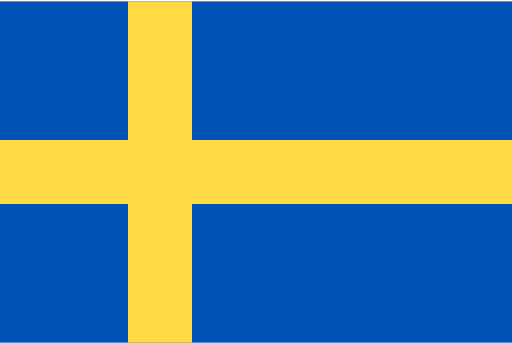Swedish vocabulary magic

Hej allihopa! Lately I’ve been working on getting back to the nerdier side of word origins while also doing a basic review of my last year worth of Swedish homework. The plan is to do a mix of both to keep things interesting.
I’ve compiled a huge amount of notes on related words between English, French, and Swedish. This post will be a mix of that, and diving into related interesting words in my reading material. As always, the goal is to increase your Swedish vocabulary by associating interesting historical bits with certain words. Once again, I’m no professional, I’m learning as well so feel free to comment with corrections and extra info!
One of the more ambitious projects of the past year has been trying to read Harry Potter and the Chamber of Secrets in Swedish, hence the title of this post, and my loosely kept theme of wizarding words. As usual, I jumped into this way ahead of my actual skill level, but that’s what keeps pushing us forward right? If you have the Storytel app you can find a ton of audiobooks in Swedish, and quite a few also have the written text. I highly recommend this as a practice method.
French influence in Swedish
At the start of this particular rabbit hole, I was clued in by a response to a previous post on Facebook about French loanwords in Swedish. Words like “restaurang” (restaurant), “butik” (boutique/store), and idé (idea) will look familiar to English speakers, as we have also pilfered these from French, who probably pilfered them from Latin, and so on and so forth. What really struck me as interesting was certain suffix endings for words that I initially didn’t realize were French, that also carry over into related Swedish and English words.
The first word that set off this train of thought that ends up at wizards and magic is “konstnär” (artist). I’ll break this word down, then apply that “-är” ending to a few other words. This is a similar concept to my previous post on turning verbs into titles by adding the “-are” suffix.
- Konst – Art, an art form (as in “the art of ____”), artificial.
- I found the use of artificial quite interesting. Konstläder (artificial leather) and konstgräs (artificial turf) are good examples.
- -är – a person or thing having the quality of the attached noun
- I’ve seen this suffix as both -när, and also just -är attached to words. They work a bit differently, but share some origins. I can’t find why and when the N gets added.
- Konstnär – A person who is associated with, produces, or performs art.
The French connection here is in the suffix -aire. I’ll show this applied a few different ways in English and Swedish.
Shared Vocabulary
| English | French | Swedish |
| Millionaire | Millionnaire | Miljonär |
| Vocabulary | Vocabulaire | Vokabulär |
| Military | Militaire | Militär |
| Sanitary | Sanitaire | Sanitär |
| (a) Revolutionary | Révolutionnaire | Revolutionär |
| Commissioner | Commissaire | Kommissionär |
In English, as is our habit, we changed the ending several different ways. Most of these words end in -ary, occasionally we keep the French -aire, but sometimes when it’s relating to a persons role or action we use -er. I’m not here to defend English weirdness, just to show the word relationships.
To go farther back, most of these forms are really in some way or another related to Latin. The Latin suffix -aris was attached to a word to make an adjective that showed a relationship to it’s root verb. An example being military/militär. In Latin “miles” means soldier, so “militaris” was a word meaning “pertaining to soldiers.
When a troll is not a troll, but a magician

Now I’ll get back to the fun nerdy bit about me struggling through Harry Potter. I highly recommend jumping into fantasy books only once you’ve built up a decent core Swedish vocabulary. One of the reasons I like doing all this word relation practice is it helps decipher unfamiliar words, and this series is full of them. When you’re dealing with subject matter that’s made up of the magical and unexpected, you’re going to run into some crazy made up stuff!
Something that kept bugging me is that where I expected to see some variation of the word “wizard”, they use the word “trollkarl”. At first I couldn’t wrap my brain around what they had to do with trolls! It turns out in Swedish “troll” doesn’t just mean the ugly monster living under the bridge. There is a verb “att trolla” which means “to perform magic”. Consequently “troll” can mean a range of magical or supernatural creatures.
Let me tie this back into the previous section. Once I had digested that “troll” was a magical word, I kept coming across “trollkonst”, which we can now put together as “the art of magic”. The practitioner of this is a “trollkonstnär” – a person who practices magical arts.
At the beginning of this section however, I wrote that the book also uses the word “trollkarl” for wizard. We know what “troll” implies now, but…
What about Karl?
In Swedish, and going back to Old Norse and most other Germanic languages “karl” simply means “man”. It also had a connotation of a manly man, someone hired to do a tough job, a laborer etc.
Having such a basic meaning, it became ridiculously popular as a name. Across most Germanic languages you can find Karl, Carl, Charles, Carlos, even female versions started popping up such as Caroline and Charlotte. To touch back to French for a moment, there is an interesting phenomenon in shifting word sounds through history that becomes apparent in the name Karl.
Sound Shifts
In the oldest forms of French, Karl was pronounced with the hard “K” sound, but this eventually morphed into the softer “CH” sound giving us “Charles” from “Karl”. Later on this kept the “CH” spelling, but the sound became even softer, more like what an English speaker would consider a “SH” sound.
The cool thing is that this tell us how long ago a French word entered the language, or was loaned into another language, by how hard or soft the K, CH, or SH sound is. (I have to credit the phenomenal History of English Podcast for that fun fact)
Here is another fun fact –
Charlemagne is another “Karl” derived name. Usually translated as “Charles the Great”, coming from Latin “Carolus Magnus”. You can take this further with the literal translation of Karl and just call Charlemagne “The Great Man”.
Finally we can understand that “Trollkarl” basically translates as “magic man”, or “guy who does the work of magic”.
That’s all I have for right now! I hope this gives you more useful word endings, and a glimpse into the world of trolls and wizards.
